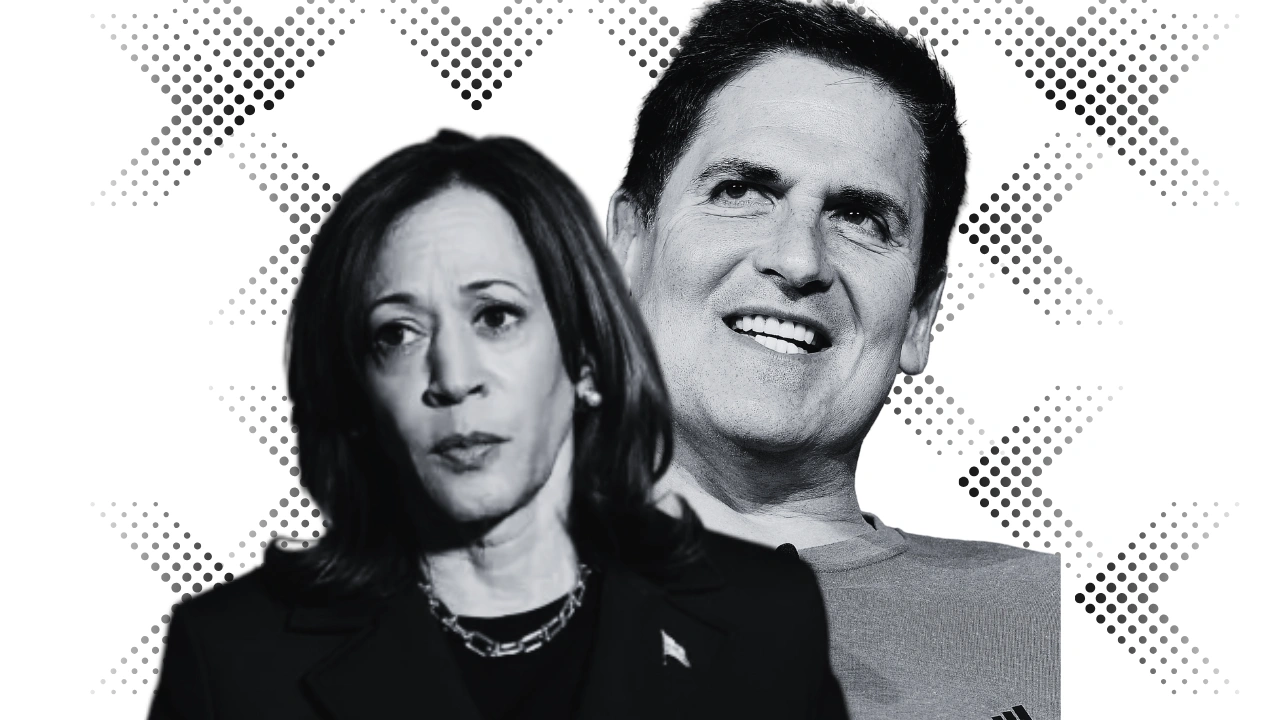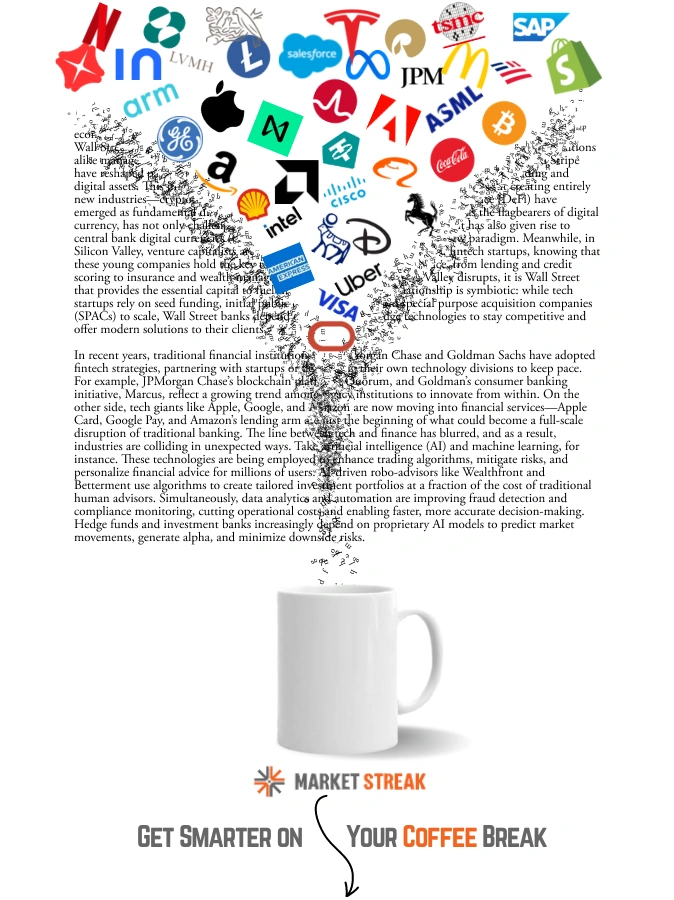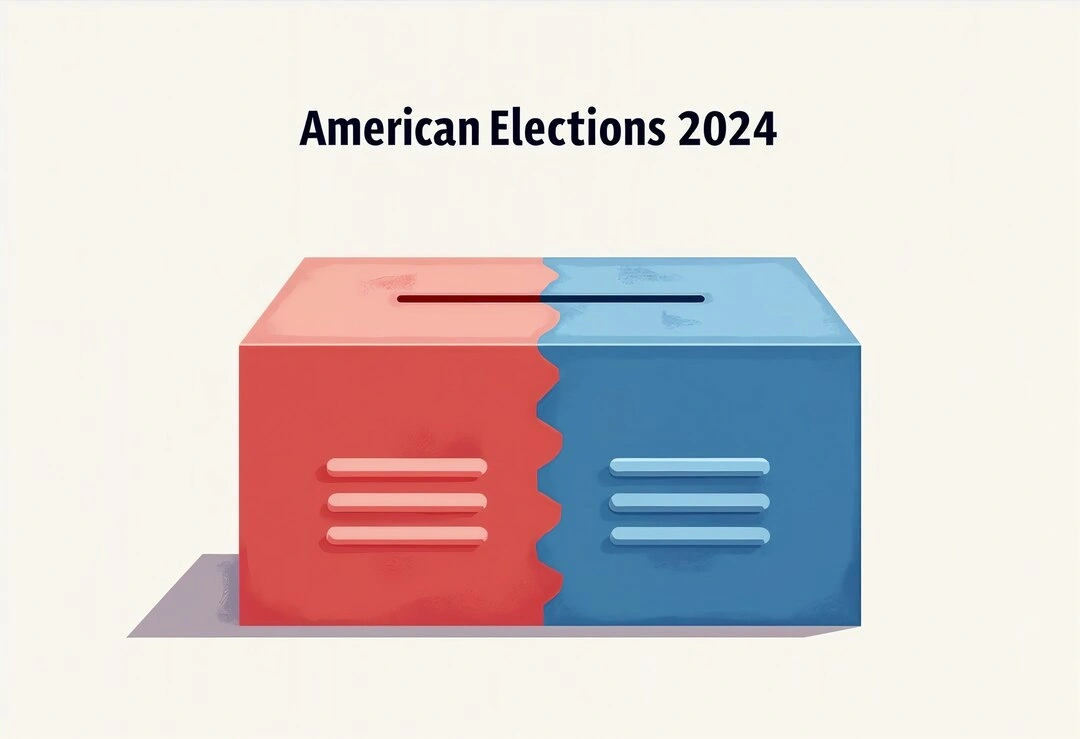Kamala Harris
Mark Cuban
2024 US Presidential Election
Political Finances

Kamala Harris
Mark Cuban
2024 US Presidential Election
Political Finances
Mark Cuban, the outspoken billionaire entrepreneur and star of "Shark Tank," has emerged as a prominent surrogate for Vice President Kamala Harris's presidential campaign. His expertise in business and economics has made him a valuable asset, offering insightful commentary and contrasting Harris's economic policies with those of her opponent. However, despite his enthusiastic support, Cuban has made it clear that his backing doesn't extend to financial contributions.
In a recent interview with ABC News, Cuban explicitly stated that he hasn't donated a single dollar to Harris's campaign. "I haven’t given her a penny," he emphasized, dispelling any speculation of substantial financial support. He further clarified that this isn't a new stance; he hasn't donated to any political candidate since 2002. Cuban explained his reasoning, stating that his support for candidates is driven by passion and a desire to contribute his expertise, rather than a transactional exchange of money for influence. He voiced his preference for candidates not feeling indebted to him due to financial contributions. "I don’t want them to work with me because I paid them to work with me," he asserted.
This approach stands in stark contrast to other prominent business figures supporting Harris. For example, Reid Hoffman, co-founder of LinkedIn, and Reed Hastings, co-founder of Netflix, have contributed millions of dollars to political action committees (PACs) supporting Harris’s candidacy. This highlights the diverse ways in which individuals choose to express their political support, with some prioritizing financial contributions while others focus on advocacy and public endorsements. The landscape of political donations is also illuminated by the significant financial support given to the opposing candidate. Tesla CEO Elon Musk has publicly contributed at least $132 million to support the election of Donald Trump and other Republican candidates. This substantial contribution underscores the significant financial resources deployed in contemporary political campaigns.
Despite his lack of monetary contributions, Cuban actively champions Harris's candidacy, leveraging his business acumen to highlight the distinctions between her policy proposals and those of her opponent. He confidently stated his ability to delve into complex economic matters, explaining the nuances of each candidate's plans and presenting a clear comparison for the electorate. "I can go into the nitty-gritty of any business topic you want to talk about," he declared, emphasizing his capacity to articulate the differing approaches.
Beyond his role as a campaign surrogate, Cuban recently addressed the possibility of holding public office himself. He acknowledged considering a presidential run in 2020, but firmly dismissed any such aspirations for the future. "No, I have no interest, no interest in being a politician of any type," he stated definitively. He also ruled out the possibility of serving in a cabinet position under a Harris administration, stating his preference for the disruptive role of an entrepreneur. "I have no interest in serving in the cabinet for Kamala Harris or anybody. I like being a disruptor as an entrepreneur," he asserted.
This statement appears to contradict an earlier suggestion he made to CNBC. Last month, he indicated his interest in leading the Securities and Exchange Commission (SEC), even suggesting his name be put forward for consideration. Cuban has been openly critical of the current SEC chair, Gary Gensler, advocating for his removal. He relayed this sentiment directly to Harris's campaign team, urging them to consider his candidacy for the SEC chairmanship. "I told her team, put my name in for the SEC. It needs to change," he revealed. This seemingly contradictory stance illustrates the complexity of his engagement with the political landscape, suggesting his influence extends beyond simple financial contributions or traditional political roles.
Cuban's political views are multifaceted and often unconventional. While he has expressed agreement with former Trump administration officials' assessments of Trump's leadership style as having "fascist tendencies," a claim which Trump’s campaign has denied, he has also stated that he would not leave the country if Trump were to win the election. This underscores a deep sense of civic responsibility and a commitment to contributing to the betterment of his nation, regardless of the outcome of the election. "I’ll do whatever I can to help this country wherever I can," he affirmed, emphasizing his dedication to national service irrespective of political affiliation. "And it doesn’t matter to me who’s president," he added, highlighting a commitment to his country that transcends partisan politics.
This situation provides a fascinating case study in political engagement. Mark Cuban’s unwavering support for Kamala Harris, coupled with his explicit rejection of financial contributions and public office, challenges traditional notions of political involvement. His unique approach, leveraging his business expertise and public profile to advocate for his chosen candidate, illustrates a diverse range of ways in which individuals can contribute to the political process. Whether this unconventional approach proves equally, or more, effective than large-scale financial donations remains a subject of ongoing debate and analysis. The efficacy of Cuban’s strategy will ultimately be measured by its contribution to the campaign’s success and, more broadly, by its influence on future political engagement strategies. His case highlights the evolving nature of political support in the 21st century, demonstrating the increasing importance of non-monetary contributions and the influence of high-profile figures, regardless of their financial contributions. This blend of fervent advocacy and staunch refusal of traditional political roles presents a unique and compelling picture of contemporary political engagement. The question remains whether this model will be replicated by other prominent individuals in future election cycles, fundamentally altering the dynamics of political campaigning.
SHARE


news
30th October 2024

news
30th October 2024


news
30th October 2024

news
30th October 2024


news
30th October 2024


news
30th October 2024


news
30th October 2024